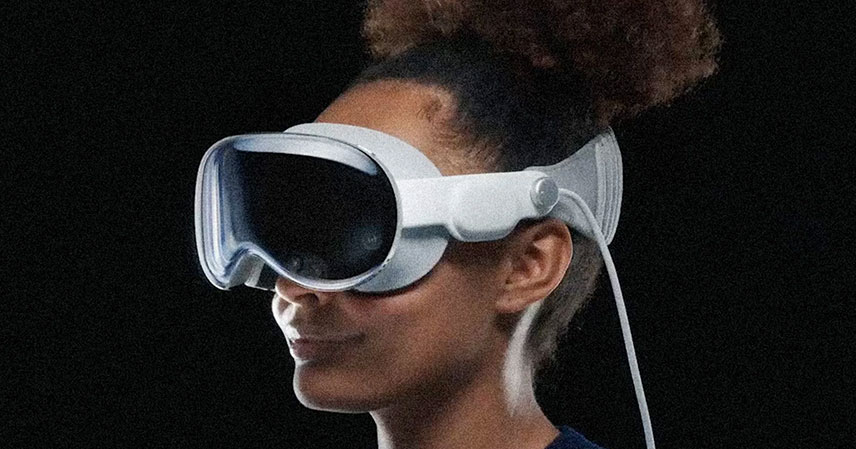Apple, a company renowned for its deliberate and often groundbreaking product launches, appears to be undergoing a significant strategic shift. Recent internal announcements, as reported by Bloomberg’s Mark Gurman, indicate a major reprioritization. The tech giant is reportedly scaling back efforts on a lighter, more affordable version of its ambitious Vision Pro headset.
Instead, Apple is now channeling its resources towards developing AI-enabled smart glasses. This move signals a departure from its initial high-end, immersive computing vision. It suggests a direct challenge to competitors like Meta in the burgeoning smart glasses market.
The Vision Pro’s Rocky Start and Apple’s Strategic Rethink 📉
The Apple Vision Pro, launched with much fanfare, carried a hefty price tag of $3,499. It was positioned as a premium ‘spatial computer.’ However, widespread adoption has been elusive. Many consumers and critics have deemed it a commercial disappointment.
Several factors contributed to its lukewarm reception. The device was perceived as too expensive for the average consumer. Its bulky design made it less practical for daily wear. Many also found it socially isolating, hindering its integration into everyday life. Crucially, it lacked a robust ecosystem of compelling apps and diverse use cases, a stark contrast to the simplicity and utility of smart glasses.
Apple’s initial strategy seemed to involve proving the device’s potential to developers first. This approach, however, did not translate into broad consumer acceptance. The company’s uncharacteristic early entry into a nascent market, combined with these significant barriers, set the stage for a re-evaluation.
Why Smart Glasses are the Next Frontier (and Why Apple is Late) 🚀
The year has truly marked a turning point for smart glasses. Devices from companies like Meta have begun to gain considerable traction. These devices often focus on more practical, augmented reality features. They integrate seamlessly into daily life, offering functionalities like hands-free photography, communication, and information access.
Apple’s reported shift towards Meta-style smart glasses, with a potential launch in 2027, acknowledges this market trend. The company is also reportedly eyeing a more advanced version with a display on the lens for 2028. This rapid acceleration suggests an urgency not typically associated with Apple’s methodical product development cycle.
The emphasis on AI-enabled smart glasses is particularly telling. Artificial intelligence is becoming central to how we interact with technology. Integrating AI could unlock new levels of utility and personalization. This direction aligns with the broader industry focus on generative AI and intelligent assistants.
The Implications of Apple’s U-Turn: A Shift in Company Philosophy? 🤔
This sudden change in focus is noteworthy for a company like Apple. Cupertino is known for its patience and long-term vision. This pivot could be an implicit acknowledgment of being considerably behind competitors in this specific segment. Michael Gartenberg, a tech analyst and former Apple marketing director, observed, “It does seem that Apple is just kind of spinning.” He added, “For the first time in a long time, Apple feels like they’re out of the conversation.”
Such a sentiment highlights the pressure Apple faces to innovate effectively in new hardware categories. The company’s usual strategy involves refining existing technologies rather than making abrupt course corrections. This move could signal a more pragmatic approach to emerging markets, prioritizing consumer utility and affordability over revolutionary, high-cost computing platforms.
The strategic shift also underscores the competitive landscape. Meta has been aggressively pursuing its vision for the metaverse and wearable technology. Apple’s decision to directly compete in the smart glasses arena demonstrates its commitment to owning the next major computing platform, even if it means adjusting its initial approach significantly.
This pivot could ultimately benefit consumers. A more focused Apple, leveraging its expertise in design and software, could bring much-needed innovation to the smart glasses market. The long-term success will depend on how effectively Apple can integrate AI and deliver compelling use cases that resonate with a wider audience.
Key Insights from Apple’s Strategic Shift 💡
- Deprioritization of Vision Pro 2: Apple is reportedly shifting resources away from a more affordable Vision Pro variant, indicating a re-evaluation of its high-end spatial computing strategy.
- Focus on AI-Enabled Smart Glasses: The company is fast-tracking development of mainstream smart glasses, aiming for a 2027 launch, with a strong emphasis on AI integration to enhance functionality.
- Acknowledgement of Market Reality: This pivot reflects Apple’s recognition of the growing smart glasses market, where competitors like Meta have gained traction, and the Vision Pro’s initial struggles.
- Uncharacteristic U-Turn: The change signifies an unusual departure from Apple’s typically patient product development, suggesting an urgent need to re-enter the conversation in wearable tech.
- Potential for Mainstream Impact: By focusing on more accessible and practical smart glasses, Apple aims to capture a broader market, potentially democratizing advanced wearable technology.
Source: The Vision Pro Was An Expensive Misstep. Now Apple Has to Catch Up With Smart Glasses



